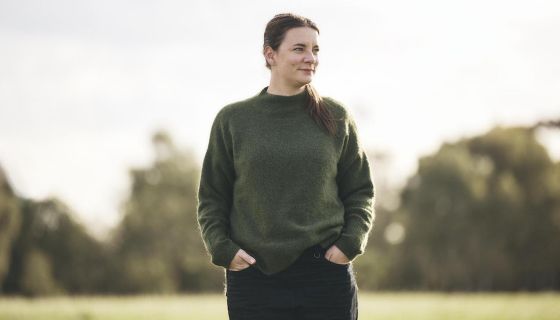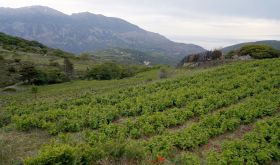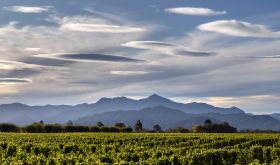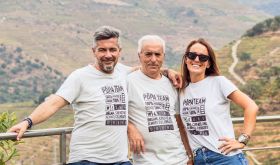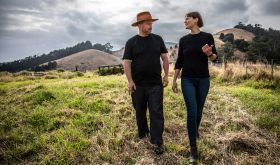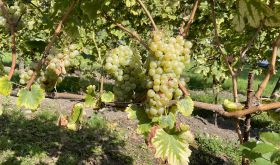From AU$36.99, 3,234 Japanese yen, HK$180, NZ$39.99, £22, €27, 320.10 Norwegian kroner, CA$38.99, 704.66 Czech koruna, 225 Danish kroner, $34.91, 2,000 Philippine pesos, SG$49, 1,190 New Taiwan dollars
I don’t think I have ever chosen a wine of the week that is so well distributed, which was a real surprise because when I tasted both the 2021 and 2022 before researching availability, I was struck by how non mass-market they seemed. Hats off to Phil Sexton’s operation, acquired by Jackson Family Wines in 2020, for managing to combine quality and quantity.
Here’s a wine that would deliver something pretty close to the white burgundy experience for a fraction of the price of a white burgundy. The Yarra Valley, outside Australia’s food-and-drink capital Melbourne, has long been proud of its Chardonnays (and Pinot Noirs). I was at a festival devoted to Yarra Valley Chardonnay back in 2019 and as a result wrote All change in the Yarra.
These two vintages are, respectively, the last made by talented winemaker Steve Flamsteed and the first by his successor Melanie Chester, pictured above, who describes the winemaking involved as ‘embarrassingly simple’. All the fruit, which comes from various vineyards all over the valley, at least half from the higher Yarra ranges, and many of them good enough to provide fruit for Giant Steps’ range of single-vineyard Chardonnay bottlings, is hand-picked.
It’s cooled overnight and then whole-bunch pressed, slowly and cool, the next day before being put into barrel that same day with full solids. Spontaneous fermentation in puncheons (15% new) follows, with a little SO2 added after about seven days, ‘but our house style is not that reductive’, according to Chester. Only about 10% of the wine is allowed to go through malolactic conversion and the wine is blended and bottled in October, seven months after the last grape was picked.
The weather in 2021 was cooler and wetter than usual, which encouraged slow ripening and yielded quite a generous crop. The yield in 2022 was much lower thanks to a difficult flowering in stormy weather. A dry December further reduced quantities and reduced average bunch weights by up to 40% of the usual. According to Chester’s notes, ‘the mild summer meant long, slow ripening and flavour concentration throughout summer, with some well-placed rain in January refreshing the vineyards at just the right time. The strong canopies and low fruit load meant we sailed neatly into picking with very little disease or weather pressure affecting our picking decisions. The grapes from 2022 came off the vine with lovely concentration and flavour and great natural acidity.’
The wines are just 12.5% alcohol but are packed with delicate fruit, refreshing acidity and, like all Giant Steps wines, are characterised by extremely long finishes. The 2022 vintage is screwcapped as usual but the first to be bottled in a lightweight bottle – weighing just 1,286 g full (the 2021 weight is 1,334 g) and it looks quite smart. Nothing cheapskate about this.
Although the 2021 is obviously 12 months older than the 2022, I thought the wines were at very similar stages of evolution, both of them delicious to drink now but with another four or five years’ development ahead of them (a pretty good prospect for this price level). I tasted both within days of tasting Giant Steps’ single-vineyard Chardonnays and, while I think the latter will have a longer life than these less expensive blends, the regular Yarra Valley Chardonnays seem absolutely brilliant value to me.
These wines must be made in quite substantial quantities, and/or have a brilliantly effective sales team behind them. The 2021 is widely available in both the UK and US as well as Australia of course, but also in Ireland, the Netherlands, Denmark, Norway, Czechia, Japan, Hong Kong, New Zealand, Canada, the Philippines, Singapore and Taiwan. The 2022 seems to be available only in Australia so far.
Chester, incidentally, was last year made the first female and youngest chief judge of the Melbourne Royal Wine Awards, the show at which the influential Jimmy Watson Trophy is awarded, succeeding Matt Harrop of Curly Flat. Her mentor, she told me over a recent lunch in London, has been Tom Carson of Yabby Lake.
I should stress that both Sexton and Flamsteed are still very much around, in line with JFW’s policy of leaving the founders of the wineries they acquire in place whenever possible.
Go find these highly recommended wines.
See all our articles tagged Yarra Valley and find another 735 reviews of Yarra wines in our tasting-note database.

